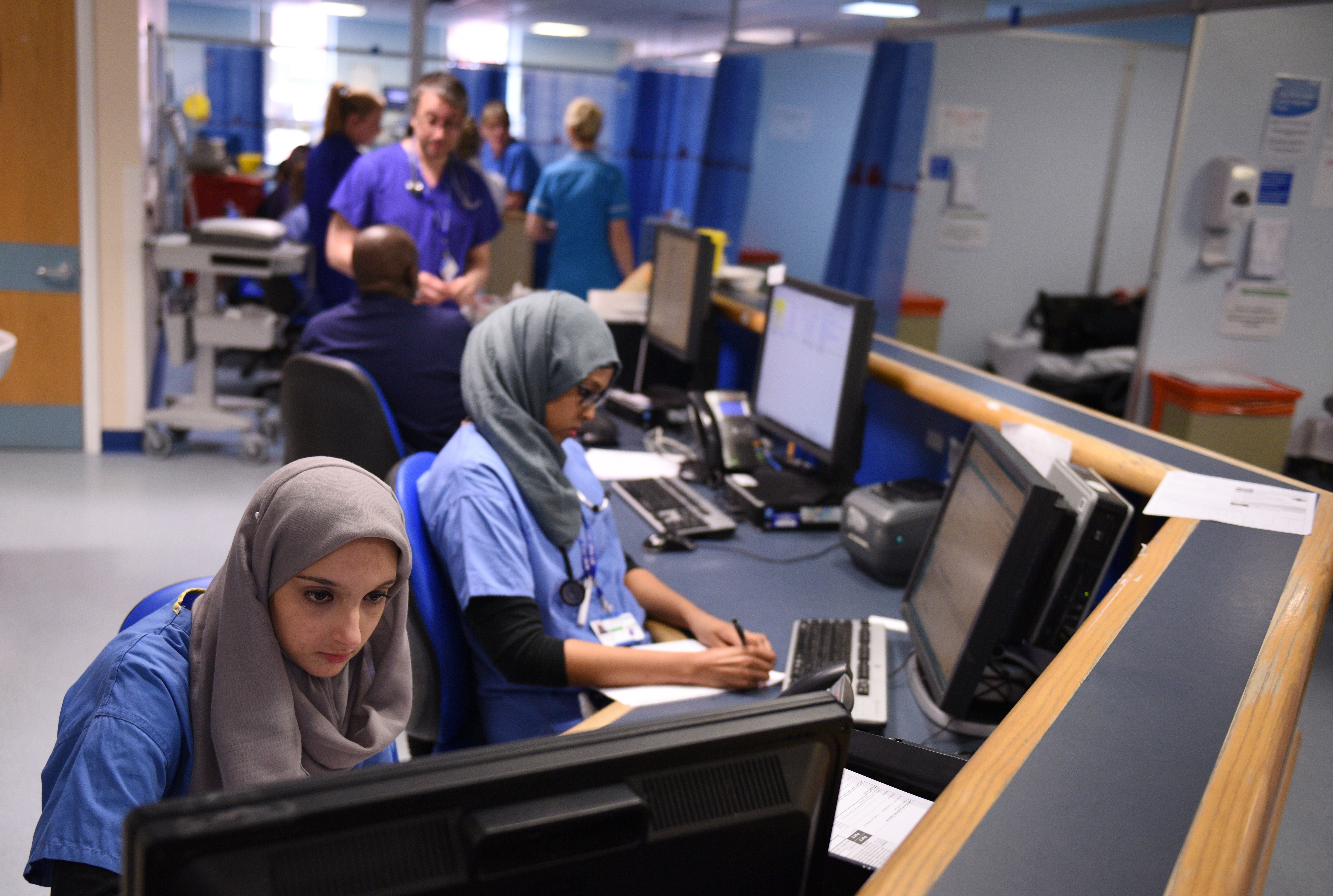I’m a trauma surgeon – many of my patients are suicide attempts because they can’t afford to eat
Like many diseases though, trauma disproportionately affects those who are socially or financially disadvantaged


Saturday morning report for the major trauma service in the hospital I work in: It’s been a busy night with eleven new patients. Four have tried to kill themselves. One phrase stands out: “He jumped because he can no longer afford to eat”.
Major trauma can affect anyone, and every year across London thousands of people from all walks of life suffer potentially life changing – or life ending – injuries. Like many diseases though, trauma disproportionately affects those who are socially or financially disadvantaged. Now we are seeing more and more people who find themselves in this position, no longer able to see a way forward. These include people with good jobs who can no longer afford their mortgage, people working two or three jobs who still can’t make ends meet, and people with daily worries about whether their children can eat. The constant financial stress is compounded by fear of worse to come, nowhere left to turn, and by feelings of deep shame, inadequacy, and failure.
Suicide is not the only manifestation of these stressors that we see. Frustration can turn to anger, and anger to violence. Already a deep societal problem, violence continues to rise, including growing levels of domestic abuse. Tiredness and frustration can lead to accidents on the roads or at work. We also see the aftermath of more people being sucked into the underworld of crime, guns, county lines and human trafficking. Major trauma is only part of the health service, and the social, education and justice services are all seeing these growing waves of people who are suffering in so many ways.
This cost of living crisis does not exist in isolation. We are still reeling from the pandemic. There are political and economic crises, conflicts in Ukraine and beyond, and we are experiencing our first real taste of the global climate catastrophe. Their direct effects and future fears weigh down on us and compound the stresses of our daily lives. Healthcare itself is in crisis, under intense pressure across all parts of the service. Staff are running on empty. Everything is so much harder and requires so much more energy. We are living through multiple crises simultaneously – a true multicrisis.
As a trauma surgeon it is my job to lead teams through critical events. Our teams bring people back from the brink and rebuild them so they can start to put their lives back together. With my colleagues we have weathered the Covid pandemic’s worst phases. I’ve been the surgical commander for the London Bridge attacks and overseen and debriefed the management of many of the critical events that London has faced. How do you get through a crisis? By protecting people, trusted leadership, designed resilience, and with each other.
Protect your people in a crisis, above everything else. Some resources are vital and can’t be easily replenished, and people are the most vital of all resources. Without people you can’t respond, you can’t recover, and you can’t rebuild. People will come through if they have capacity, purpose, and have security for themselves and their families. Protect those in your care.
To keep up to speed with all the latest opinions and comment, sign up to our free weekly Voices Dispatches newsletter by clicking here
In a crisis, effective leadership is the difference between resolution and chaos. Leaders must understand that it is the people on the ground who will see us through. Leadership is not about commands and decrees; leadership is about supporting those at the frontline, facilitating and resourcing them to allow them to deliver. Leaders set the priorities, pace, and tone. To do so they need to inspire trust and confidence in their people.
To cope with crises, our services must have resilience at their core. Systems and environments need to have the inherent capacity to absorb future demands. Anything that runs at 100 per cent efficiency is inherently fragile and will fail under even modest stress. Again, people are the key. Individual resilience comes primarily from reducing external pressures, off-loading stressors, and providing time and space. For a futureproof nation, we must finally learn to prioritise resilience over efficiency.
Advice to those who are worrying and suffering right now is very difficult and there are no easy answers. After the London bombings, staff most likely to suffer post-traumatic stress were those who were most isolated. We need to look after ourselves and each other. Find support from friends, families and neighbours. Community is everything, while division will kill. Regardless of the pressures, the NHS is always here for you. We will come through this, albeit changed in ways we can’t know.
As we move to a sustainable future, we are going to have to weather these multicrises – individually and collectively. We must understand how to survive with our society intact. Most important, now and in the future, are people.
Professor Karim Brohi is a consultant trauma surgeon at a London Major Trauma Centre
If you are experiencing feelings of distress and isolation, or are struggling to cope, The Samaritans offers support; you can speak to someone for free over the phone, in confidence, on 116 123 (UK and ROI), email jo@samaritans.org, or visit the Samaritans website to find details of your nearest branch.
If you are based in the USA, and you or someone you know needs mental health assistance right now, call National Suicide Prevention Helpline on 1-800-273-TALK (8255). The Helpline is a free, confidential crisis hotline that is available to everyone 24 hours a day, seven days a week.
If you are in another country, you can go to www.befrienders.org to find a helpline near you.
Join our commenting forum
Join thought-provoking conversations, follow other Independent readers and see their replies
Comments
Bookmark popover
Removed from bookmarks